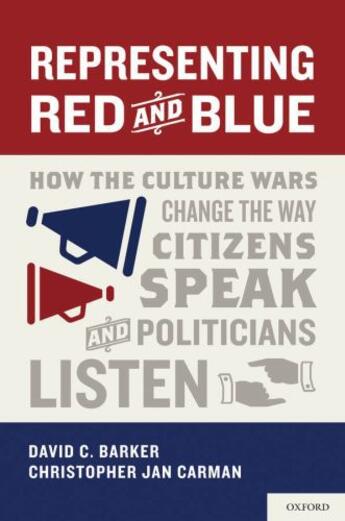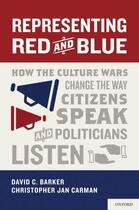-
Nombre de pages : (-)
-
Collection :
(-)
-
Genre :
(-)
-
Thème :
Non attribué
-
Prix littéraire(s) :
(-)
Résumé:
What is a political representative's job, really? Are they supposed to simply figure out what "the people" want and deliver it, or are they charged to do what they think is best for their constituents -- even if that means sometimes ignoring those constituents' wishes? In Representing Red and... Voir plus
What is a political representative's job, really? Are they supposed to simply figure out what "the people" want and deliver it, or are they charged to do what they think is best for their constituents -- even if that means sometimes ignoring those constituents' wishes? In Representing Red and Blue, David Barker and Christopher Carman explore what people think about this question, why their answers vary, and what difference it makes. They observe that the citizens of "Red America" -- religious and cultural traditionalists, including most Republicans -- often prefer lawmakers who challenge public opinion, whereas "Blue Americans," or culturally progressive Democrats, typically prefer lawmakers who follow it. What is more, these preferences filter up: lawmakers who represent progressive locales tend to pursue the policies their constituents want, whereas representatives of more traditionalistic places often behave quite differently, leaning decidedly to the Right of even most Red American voters. The fundamental reason underlying these patterns, Barker and Carman argue, is that on average, traditionalists and progressives simply do not hold the values of liberal popular democracy in equally high esteem. What all of this means is that the citizens of Red America live in a different kind of democracy than that of the citizens of Blue America -- one where they have less political say over what their government does, but one that seems to suit their tastes all the same.
Donner votre avis















